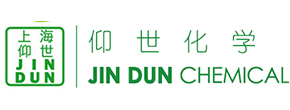686
The Advantages of Using an Environmentally Friendly Anti-Seepage Agent
2023/4/10
Introduction:
In recent years, there has been a growing concern about the impact of chemicals on the environment. As a result, many industries, including the construction industry, have been looking for ways to reduce their environmental footprint. One way that construction companies can do this is by using environmentally friendly anti-seepage agents. In this article, we'll explore what environmentally friendly anti-seepage agents are, how they work, and the benefits they offer.What is an Environmentally Friendly Anti-Seepage Agent?
An environmentally friendly anti-seepage agent is a chemical that is used to prevent the seepage of liquids through porous materials such as concrete, soil, and rock. These agents are designed to be environmentally friendly, which means that they are non-toxic and biodegradable. They are often made from natural materials, such as plant-based polymers or proteins.How do Environmentally Friendly Anti-Seepage Agents Work?
Environmentally friendly anti-seepage agents work by forming a barrier between the liquid and the porous material. This barrier prevents the liquid from seeping through the material and into the ground. These agents can be applied to a variety of surfaces, including concrete walls, floors, and roofs, as well as soil and rock.Benefits of Using an Environmentally Friendly Anti-Seepage Agent:
There are several benefits to using an environmentally friendly anti-seepage agent, including:
- Reduced environmental impact: Environmentally friendly anti-seepage agents are non-toxic and biodegradable, which means that they do not have a negative impact on the environment.
- Increased durability: Anti-seepage agents help to prevent the seepage of liquids, which can increase the durability of concrete and other porous materials.
- Cost-effective: Using an anti-seepage agent can be cost-effective as it can help to reduce the need for costly repairs.
- Versatile: Anti-seepage agents can be used on a variety of surfaces, including concrete, soil,and rock.
- Improved safety: Preventing the seepage of liquids can improve safety by reducing the risk of accidents and structural damage.
Conclusion:
Using an environmentally friendly anti-seepage agent can offer several benefits to construction companies and the environment. By preventing the seepage of liquids through porous materials, these agents can increase the durability of concrete and other surfaces while reducing the need for costly repairs. Additionally, environmentally friendly anti-seepage agents are non-toxic and biodegradable, making them a safer and more sustainable option for construction projects.
